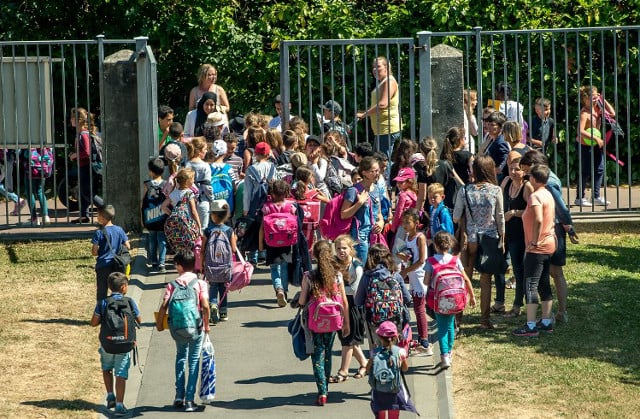
EDUCATION
Third of French primary schools to return to a four-day week
The French school timetable is about to change for the third time in nine years, or at least it is for a third of the country's schools, which will return to a four day week.
Published: 19 July 2017 11:19 CEST

Photo: AFP
A third of French primary schools will be returning to the four day week from the new school year beginning in September.
The ministry of education confirmed on Tuesday that a third of French primary schools, or 31.8 percent to be exact, teaching 28.7 percent of the country's young children, will return to the four-day week based on a decision made by their local authorities.
France's new president Emmanuel Macron announced his intentions to change the primary school timetable early on in his presidency, saying that he would give authorities the option of returning to the four-day week in place of the four and a half-day week put in place by the previous government.
READ ALSO:

Photo: AFP
For the schools changing their timetables in September – in a move which the ministry of education dubbed a “new freedom” – this represents the third change in nine years.
In 2008, then president Nicolas Sarkozy introduced the four-day week and in 2013/2014 his successor Socialist President Francois Hollande instituted one half day during the school week, with most schools choosing to open on Wednesday mornings.
The change has been made possible by a decree published at the end of June, which allows for teaching hours to be divided up differently while maintaining the number of total hours taught over the entire year.
Some of the places in France set to adopt the new timetable this year include all of the large towns and cities of the Var and the Alpes-Maritimes on the French Riviera, including Antibes, Cannes, Nice, Toulon and Hyères, as well as the northern cities of Tourcoing and Calais, governed by the regional educational authority of Lille.
On top of that, 53 percent of schools under the southern city of Montpellier's education authority will be returning to four-day weeks, as will 83 percent of schools in the Pyrénées-Orientales near the Spanish border and 85 percent in the southern department of Lozère.
But this won't be the case quite yet for children in Paris and Marseille, where the authorities have chosen to keep the four and a half-day week until September 2018.
And the move is not without controversy, with specialists recommending in 2013 the four and a half-day week as the better option for young children, and the Medical Academy saying that the best interests of children should be prioritised over those of adults.
Url copied to clipboard!


 Please whitelist us to continue reading.
Please whitelist us to continue reading.